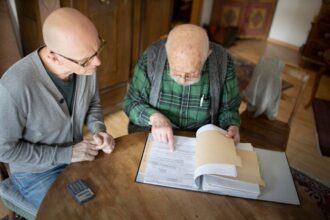Do you want to retire in comfort? What does that mean?
Everyone has their own vision of what a comfortable retirement looks like. But there is a common thread you share with all of them. To retire with ease requires something akin to financial independence. This is the ideal. This is where you don’t ever have to worry about where the next dollar will come from.
“Being ‘financially independent’ means being in a state where one has acquired enough wealth, assets, and income to sustain their desired lifestyle without depending on external sources of income,” says Melissa Terry, a CFA
CFA
Why is it hard to become financially independent?
The National Council on Aging says “roughly 1 in 3” seniors are economically insecure. They define this as anyone with incomes below 200% of the Federal Poverty Line. Your common sense tells you the numbers are even worse when it comes to measuring financial independence, which likely requires an income well above what the Federal government considers the poverty line.
“Determining if one is financially independent requires assessing several factors,” says Percy Grunwald, technical lead at Cisco Meraki in San Francisco. “Firstly, it involves evaluating whether an individual’s passive income, such as returns from investments, rental properties, or business ventures, is sufficient to cover their expenses. Additionally, having an emergency fund to handle unforeseen financial challenges is crucial. Secondly, one must consider their ability to sustain their desired lifestyle and future financial goals without relying on employment income. Finally, being financially independent entails having a well-thought-out financial plan, which includes retirement savings, investment strategies, and a comprehensive understanding of personal finances.”
A recent study by Paychex shows that “55% of retirees went back to work because they needed more money.” It is hard to become financially independent when you need a paycheck from somebody else.
“If you rely on an outside source of income, such as a salary from a job or government assistance, you’re not truly financially independent because you’re dependent on that source,” says Eliza Arnold, Co-Founder & CEO of Arnie in San Francisco. “Should it disappear, you could be in a bind. True financial independence means your assets—like your investments or businesses you own—are generating sufficient income for you.”
Aye, there’s the rub. While the definition of true financial independence varies from individual to individual, you can certainly know when you’re not financially independent.
“True financial independence is compromised when an individual relies on any outside income source other than their own investments or businesses they own,” says Grunwald. “While income from non-owned businesses or government support might provide temporary relief or supplement one’s finances, it introduces a level of dependence on external entities. Relying on income from sources outside of personal investments and businesses may lead to a lack of control over one’s financial destiny. True financial independence is achieved when an individual’s wealth and assets generate sufficient income to sustain their desired lifestyle without relying on external sources, providing them with greater control and security over their financial future.”
The point you become financially independent
If you know what financial independence isn’t, how can you tell what it is? Well, here’s a twist: It is possible to both work and be financially independent.
“There are different ways you can measure yourself to be financially independent,” says Eric Mangold, founder of Argosy Wealth Management in Parsippany, New Jersey. “One way is if you are working, are you working because you want to or because you have to? If you are working because you want to, not because you need the income, that is one way to know if you are financially independent.”
Indeed, perhaps the most practical measure of financial independence is your relationship with working.
“You know you’re financially independent when your passive income—money that comes in without you having to actively work for it—covers your living expenses,” says James Allen, the founder of Billpin in Los Angeles. “It’s when you wake up in the morning and realize that you don’t have to work to keep the lights on; your investments are doing that for you.”
Two steps you can take to become financially independent
There are two avenues available to you to achieve financial independence on your own (that is, without inheriting it). You can save your way to wealth, or you can sell your way to wealth.
“Create regular savings programs to build an asset base and acquire assets that will generate income (annuities, rental properties, etc.) and aggregate to contribute toward independence,” says Michael Kazakewich, partner and advisor at Coastal Bridge Advisors in Westport, Connecticut. “Understanding the attributes and risks within your portfolio can also help contribute to financial independence. Secondly, have a clear financial plan to achieve your vision of financial independence, and regularly revisit where you are in relation to your goals.”
“Financially independent people tend to have some common traits,” says V. Henry Astarjian, managing director at Waterstone Advisors, LLC in Walpole, Massachusetts. “They rely on themselves and their talents. They educate and train themselves in order to become useful to others. They understand that offering products or services that others want is the key to their own financial success. And they value financial independence as a thing on its own.”
The path you choose will depend on your nature. Either way, you might say it is your duty as an American citizen to keep striving toward financial independence. Our Founding Fathers would agree.
Read the full article here










